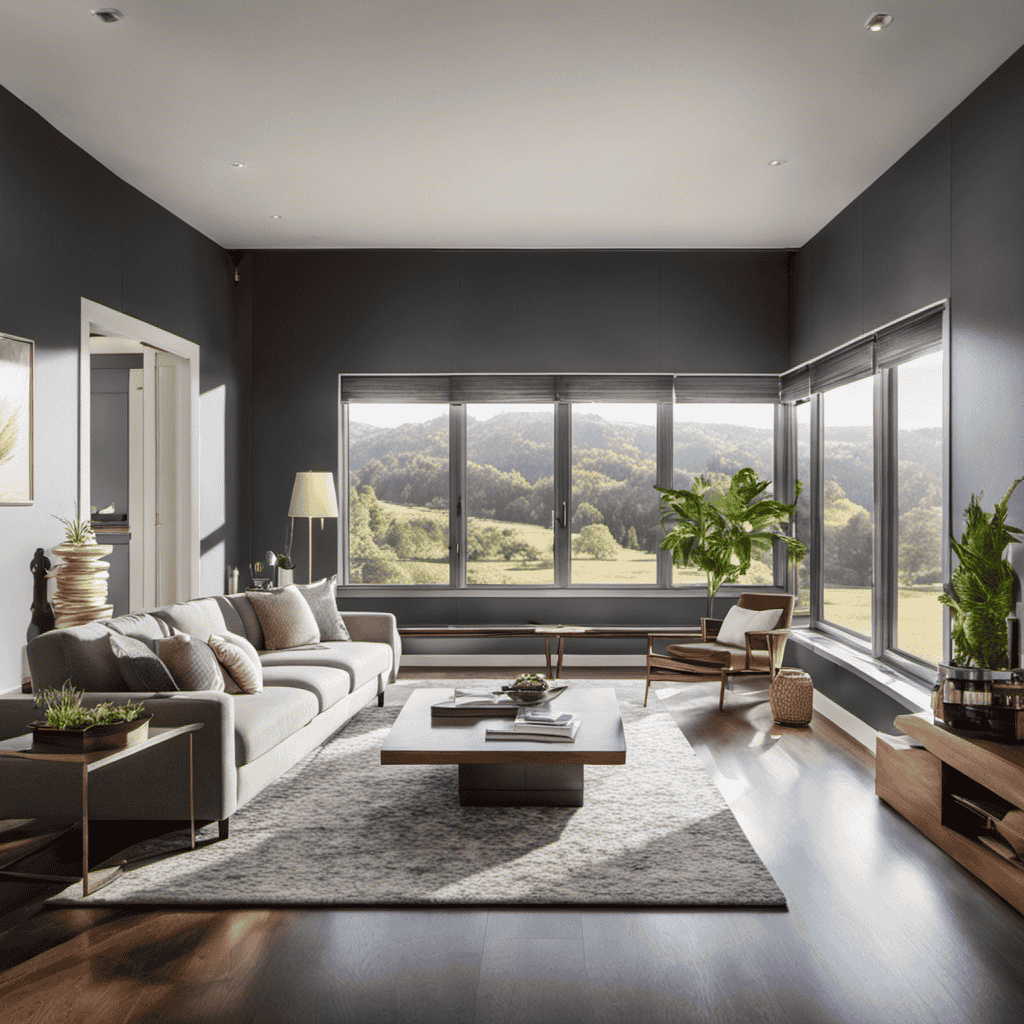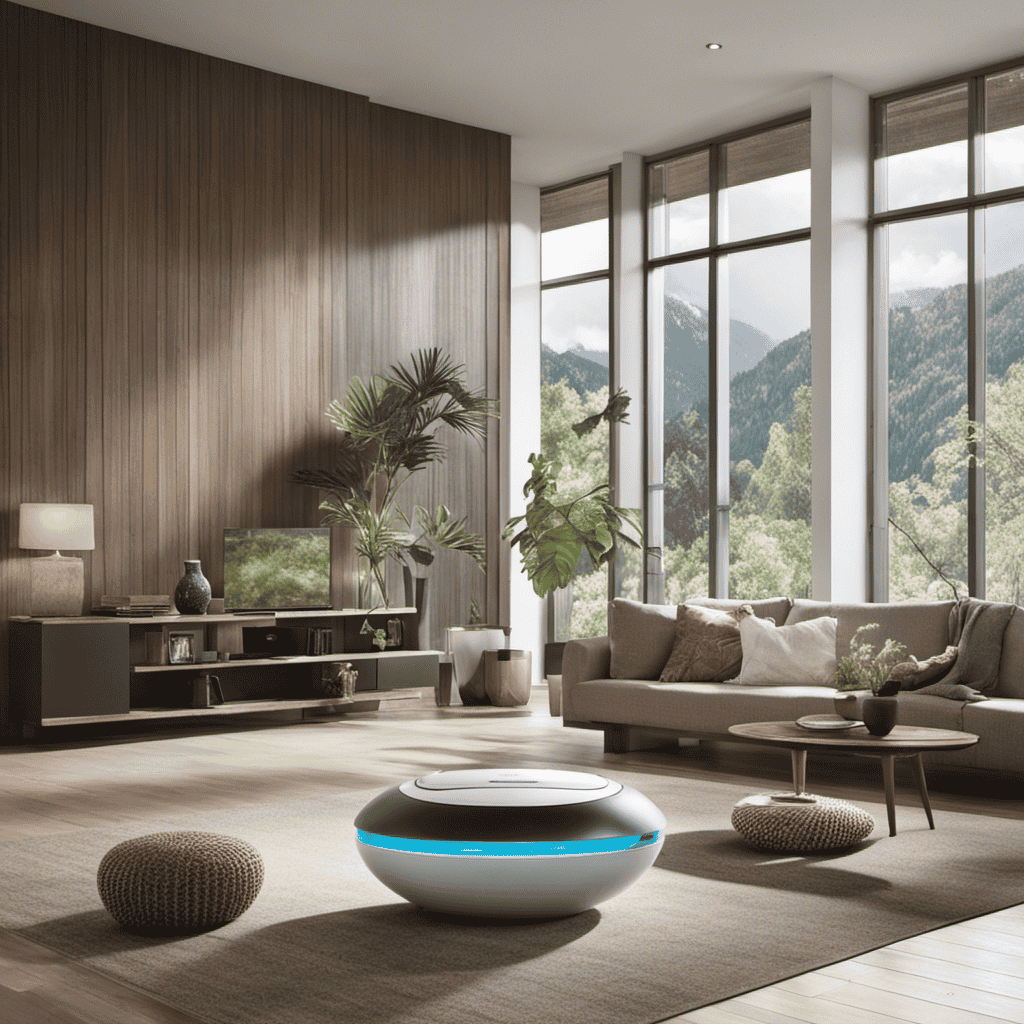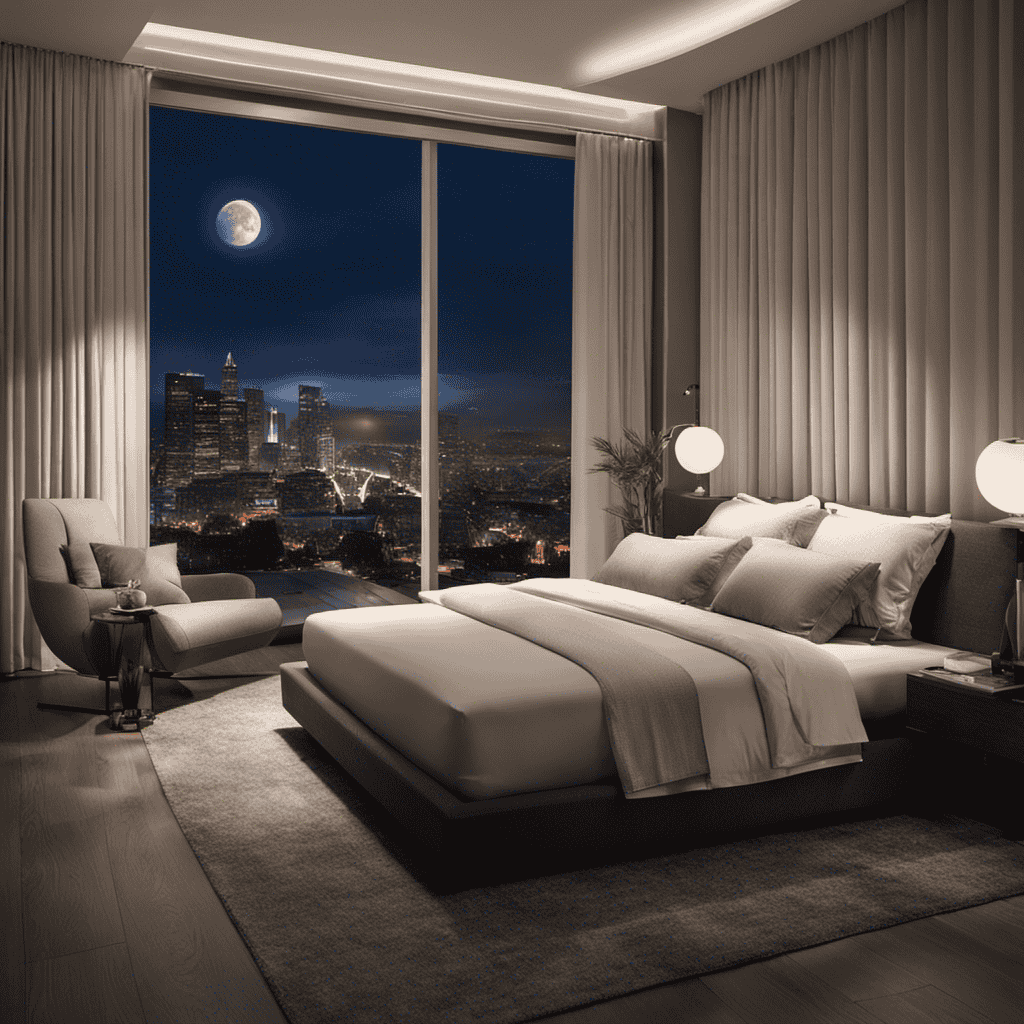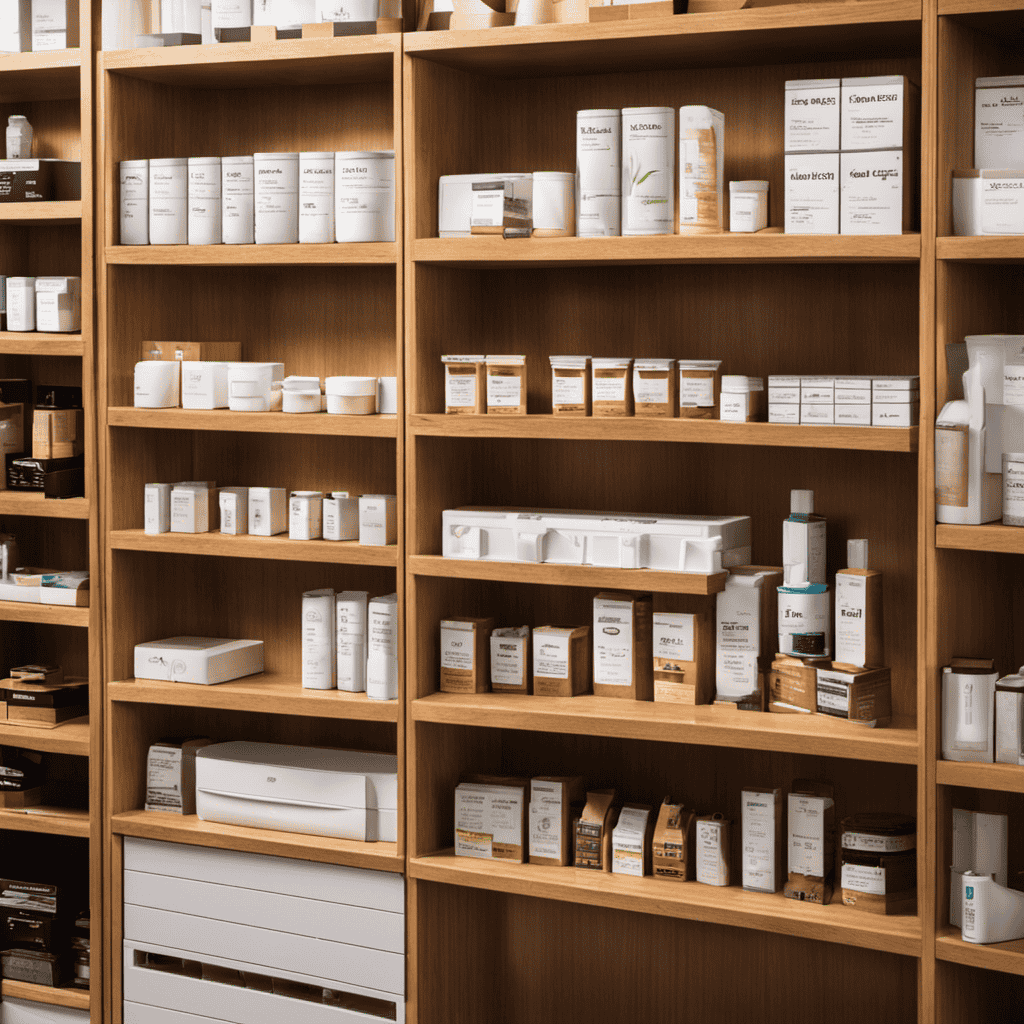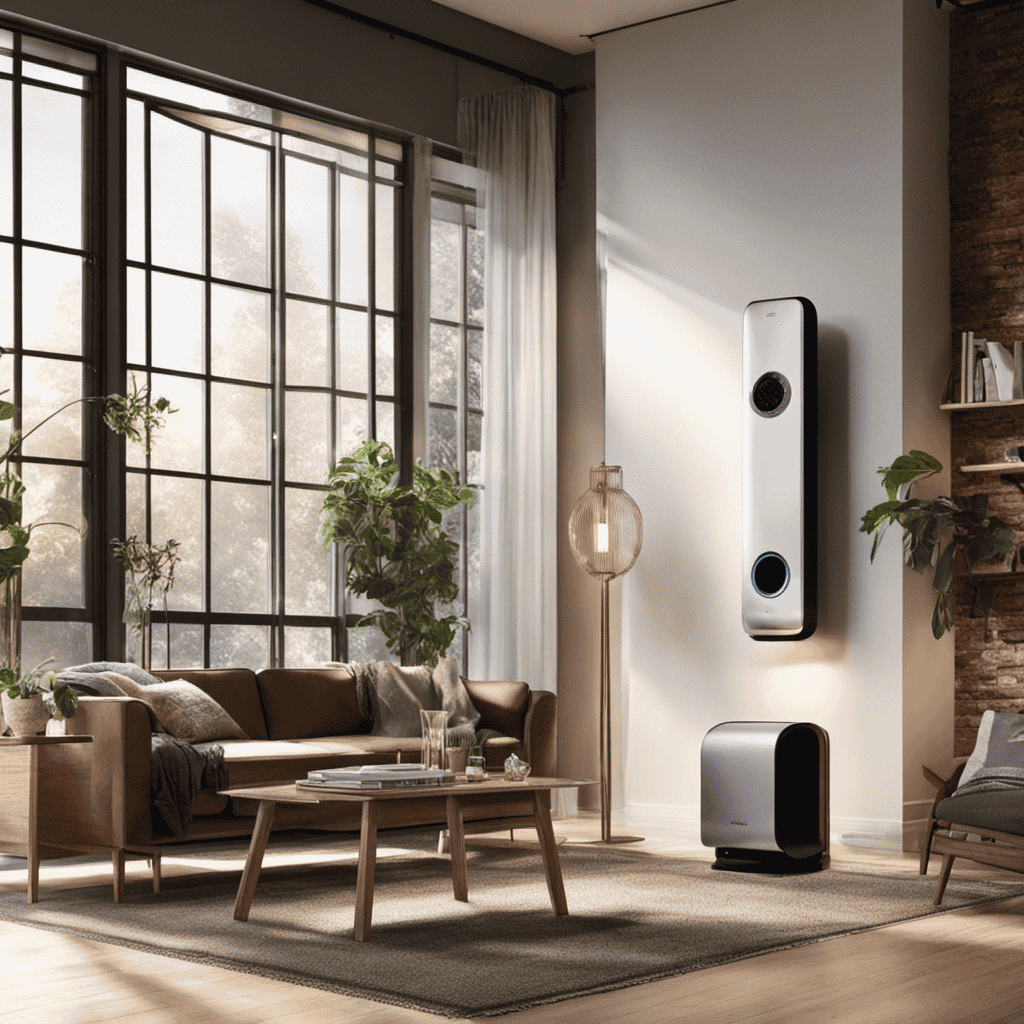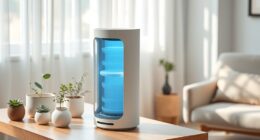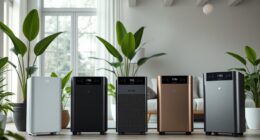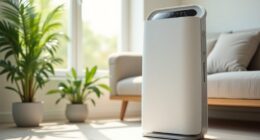I am astounded by the extent to which air purifiers have become a part of our daily lives. These unique gadgets now rule over us, changing the air we inhale completely.
With their advanced technology and powerful filtration systems, they have revolutionized indoor air quality. Not only do they provide allergy relief, but they also have a profound impact on respiratory health.
The rise of air purifiers has truly changed the way we think about our living spaces, and their dominance shows no signs of slowing down.
Key Takeaways
- Air purifiers have rapidly evolved over the years, incorporating HEPA filters and smart technology.
- The popularity of air purifiers has risen due to increasing consumer demand for healthier indoor environments and recognition of the importance of clean air.
- Air purifiers provide various health benefits, including the reduction of indoor air pollution, allergy relief, and improved breathing.
- Rising pollution levels globally have led to the implementation of air pollution solutions, including the use of air purifiers to improve indoor air quality.
The Evolution of Air Purifiers
I’ve noticed how air purifiers have been evolving rapidly over the years, becoming more advanced and efficient at cleaning the air we breathe. This evolution can be attributed to the constant drive for innovation and the increasing consumer demand for healthier indoor environments.

Manufacturers have responded to these consumer demand trends by incorporating evolutionary advancements in air purifier technology. One significant advancement is the use of High-Efficiency Particulate Air (HEPA) filters. These filters are designed to capture particles as small as 0.3 microns, effectively removing allergens, dust, and other airborne contaminants from the air. HEPA filters have become a standard feature in modern air purifiers due to their high filtration efficiency.
Another evolutionary advancement is the integration of smart technology into air purifiers. These smart purifiers can be controlled remotely through smartphone apps, allowing users to monitor and adjust the air quality in their homes from anywhere. Some models even have sensors that automatically detect and respond to changes in air quality.
Overall, the evolution of air purifiers has been driven by consumer demand for cleaner and healthier indoor air. The incorporation of HEPA filters and smart technology has made these devices more efficient and user-friendly, ensuring that we can breathe easier in our own homes.
The Surprising Popularity of Air Purifiers
I never would have expected air purifiers to become such a popular household item. But it seems that people are increasingly recognizing the importance of clean air.
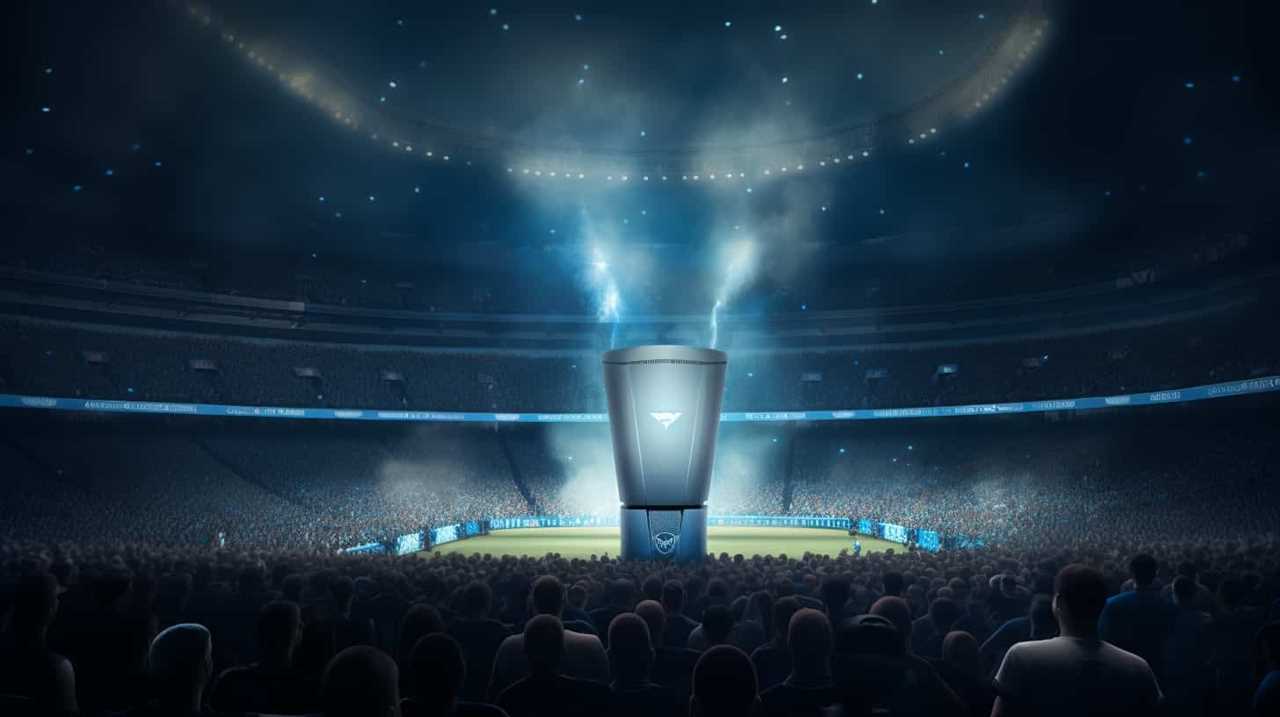
The rise in pollution levels globally has undoubtedly played a significant role in this surge in popularity. As people strive to create healthier living environments.
Additionally, the health benefits associated with air purifiers have further contributed to their widespread adoption. These benefits include reducing allergies and respiratory issues.
Health Benefits of Purifiers
Using an air purifier has significantly improved my allergies and breathing. The health benefits of air purifiers are numerous and well-documented. Here are three key benefits that I’ve experienced firsthand:
Reduction of indoor air pollution: Air purifiers effectively filter out harmful particles such as dust, pollen, pet dander, and mold spores. This helps create a cleaner and healthier indoor environment.
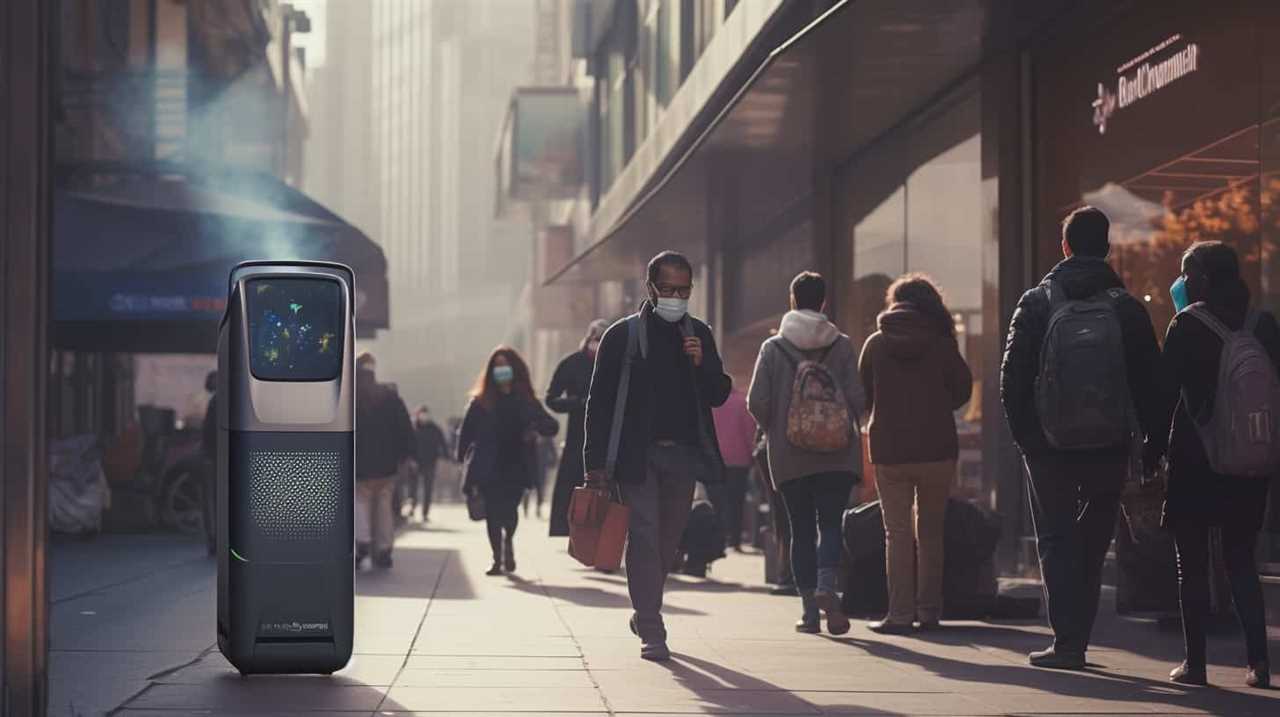
Allergy relief: By removing allergens from the air, air purifiers can provide relief for individuals suffering from allergies. I’ve noticed a significant decrease in my allergy symptoms since using an air purifier.
Air purifiers for pets: If you’ve pets, you know that they can contribute to indoor air pollution. Air purifiers specifically designed for pet owners can efficiently capture pet hair and dander, reducing pet-related allergens and odors.
Rising Pollution Levels Globally
With pollution levels on the rise globally, it’s imperative to find effective ways to combat this growing problem. Rising pollution levels pose significant threats to human health and the environment. Increased industrialization, transportation emissions, and the burning of fossil fuels contribute to the deterioration of air quality. Exposure to air pollution is linked to various respiratory and cardiovascular diseases, as well as premature death.
To address this issue, air pollution solutions are being implemented worldwide. These include the use of renewable energy sources, such as solar and wind power, to reduce reliance on fossil fuels. Additionally, implementing stricter emission standards for vehicles and industries helps to reduce pollution. Furthermore, promoting sustainable urban planning and green spaces can improve air quality in cities.

It’s crucial to continue developing and implementing these solutions to protect our health and the environment.
How Air Purifiers Are Revolutionizing Indoor Air Quality
Breathing in cleaner air has become easier than ever thanks to the revolutionary technology of air purifiers. These devices are making a significant impact on indoor air quality, especially in commercial spaces, schools, and universities.
Here are three ways air purifiers are revolutionizing indoor air quality:
Removal of pollutants: Air purifiers effectively remove a wide range of pollutants such as dust, pollen, pet dander, and mold spores. This ensures a healthier and cleaner environment for people to breathe in.
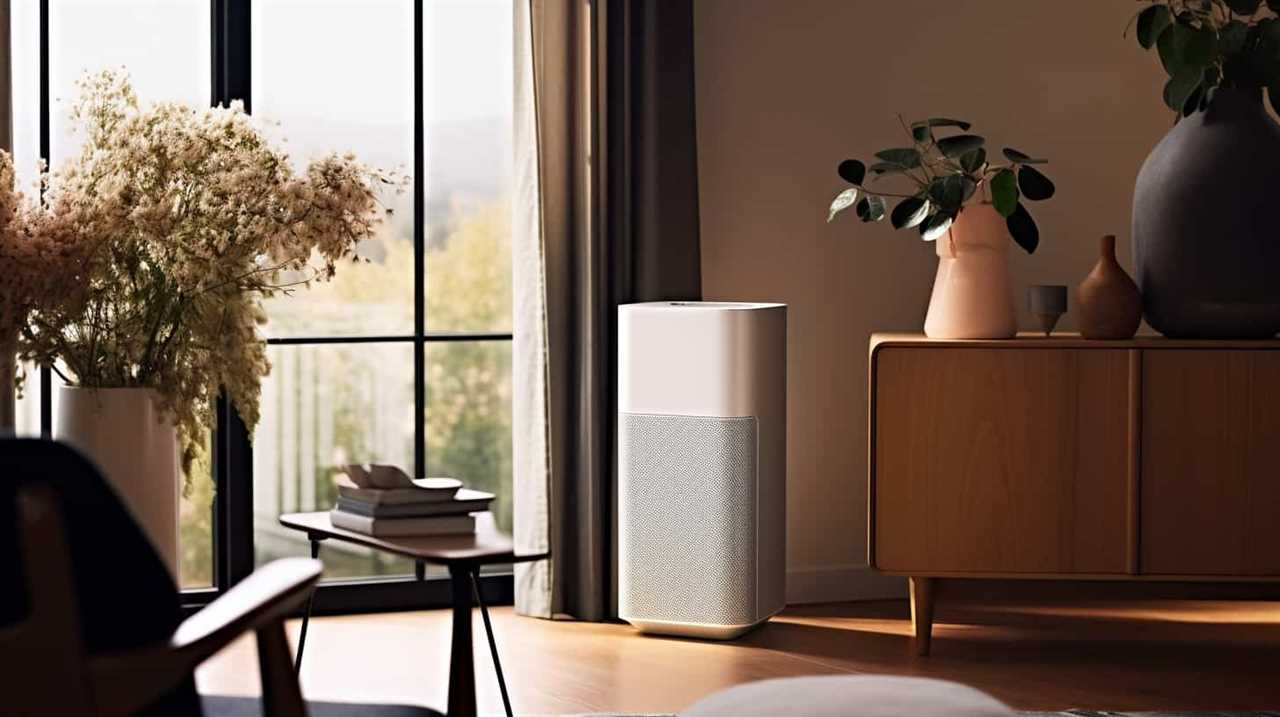
Allergen control: Air purifiers with HEPA filters can capture and eliminate allergens that trigger allergies and asthma. This is particularly beneficial in schools and universities, where students and staff with respiratory conditions can experience relief and improved productivity.
Odor elimination: Air purifiers equipped with activated carbon filters can effectively neutralize unpleasant odors caused by cooking, pets, or chemicals. This creates a more pleasant and inviting atmosphere in commercial spaces, enhancing the overall experience for customers and employees.
With their advanced filtration systems, air purifiers are transforming the way we experience and breathe in indoor air, providing cleaner and healthier environments in commercial spaces, schools, and universities.
The Health Benefits of Air Purifiers
Air purifiers offer a range of health benefits by improving indoor air quality. They work by removing harmful pollutants such as dust, allergens, and volatile organic compounds (VOCs) from the air, leading to cleaner and fresher air in our living spaces.
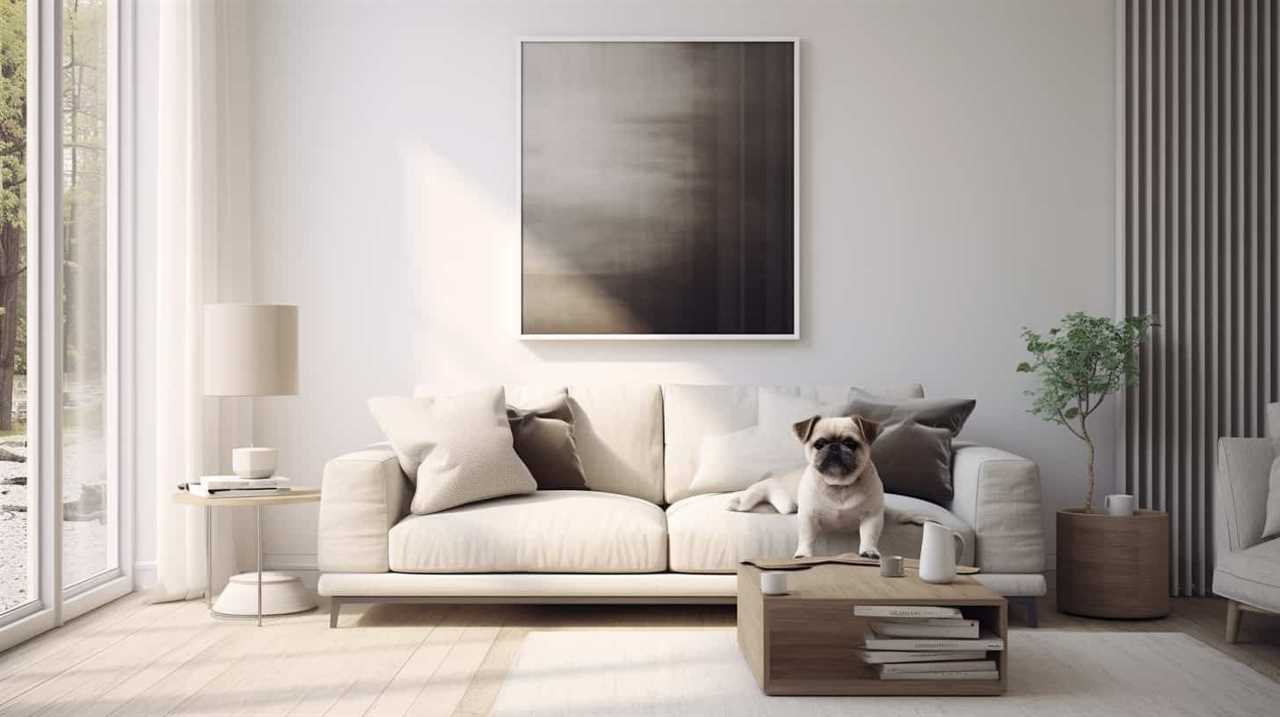
These devices can also provide relief for individuals suffering from allergies or respiratory conditions, reducing symptoms and improving overall well-being.
Cleaner Indoor Air
Honestly, I never realized how much cleaner indoor air could improve my overall well-being until I started using an air purifier. The difference in the quality of air in my home is remarkable.
Here are three key reasons why cleaner indoor air is essential for a healthy home:
Reduces air pollution: Air purifiers effectively remove harmful pollutants such as dust, pollen, pet dander, and volatile organic compounds (VOCs) from the air we breathe. This helps to reduce the risk of respiratory issues and allergies.

Removes odors: Air purifiers can eliminate unpleasant odors caused by cooking, pets, or tobacco smoke. They work by neutralizing the odor-causing particles in the air, leaving a fresh and clean environment.
Improves sleep quality: Breathing in clean air while sleeping can improve the quality of your sleep. Air purifiers remove airborne irritants that can disrupt sleep, resulting in a more restful and rejuvenating night’s rest.
Allergy Relief
As someone who suffers from allergies, I’ve found that using an air purifier has significantly reduced my symptoms. Air purifiers work by filtering out airborne particles and pollutants, such as pollen, dust mites, pet dander, and mold spores, which are common triggers for allergies. These devices use various filtration technologies, including HEPA (High Efficiency Particulate Air) filters, activated carbon filters, and ionizers, to capture and eliminate these allergens from the air.
Regular air purifier maintenance is important to ensure optimal performance. This includes cleaning or replacing filters, cleaning the device itself, and monitoring air quality. With the advancements in air purifier technology, modern devices are now equipped with smart features, such as air quality sensors and Wi-Fi connectivity, allowing for easier monitoring and control. These advancements have made air purifiers more efficient and convenient, providing allergy relief for individuals like me.
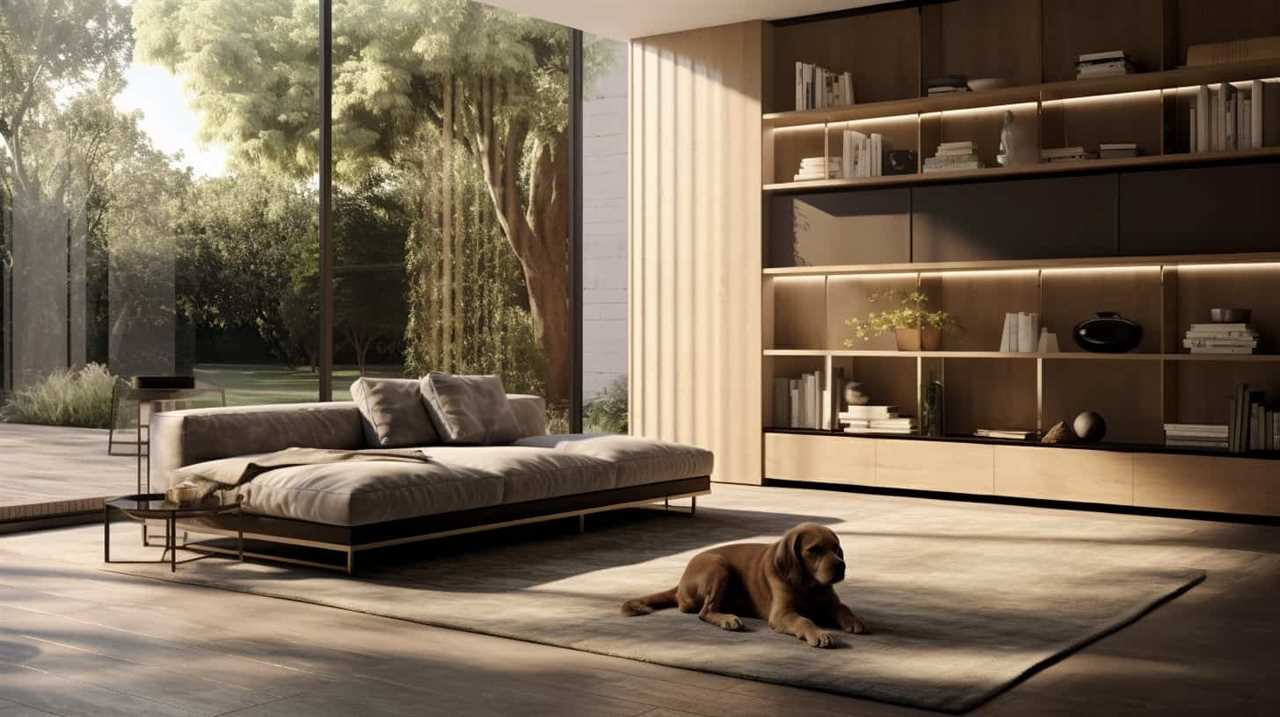
Transitioning to the next section, let’s delve into the technology behind air purifiers and how they actually work.
The Technology Behind Air Purifiers
I can’t help but marvel at the intricate technology that powers these air purifiers. The advancements in air purifier technology have revolutionized the way we clean the air in our homes and workplaces.
Here are three innovative features that make these devices so effective:
High-efficiency particulate air (HEPA) filters: These filters are capable of capturing particles as small as 0.3 microns, including allergens, dust, and pet dander. They use a combination of mechanical and electrostatic methods to trap and remove pollutants from the air.

Activated carbon filters: These filters are designed to remove odors, gases, and chemical pollutants from the air. The activated carbon material has a large surface area that can adsorb and neutralize these harmful substances.
Smart sensors and air quality indicators: Modern air purifiers are equipped with sensors that can detect the quality of the air in real-time. They can monitor levels of pollutants and adjust the purification settings accordingly, ensuring optimal air quality at all times.
These advancements in air purifier technology have made these devices more efficient and effective in improving indoor air quality.
The Environmental Impact of Air Purifiers
Now, let’s take a closer look at the environmental impact of air purifiers. While these devices are designed to improve indoor air quality, they also have implications for climate change. Air purifiers typically consume electricity to operate, and this energy consumption contributes to greenhouse gas emissions. Additionally, the production and disposal of air purifiers can have negative environmental effects, as they require the use of raw materials and generate waste.

Another aspect to consider is the cost of air purifiers. These devices can vary widely in price, depending on the brand, model, and features. While some may argue that the cost is justified for the potential health benefits, others may find it prohibitive. It’s important to weigh the cost against the long-term environmental and health implications before investing in an air purifier.
As we delve into the environmental impact and cost of air purifiers, it becomes evident that these factors play a crucial role in understanding their overall sustainability.
Now, let’s explore the growing market for air purifiers and how it has influenced consumer behavior and choices.
The Growing Market for Air Purifiers
With the increasing demand for cleaner indoor air, the market for air purifiers has expanded significantly, influencing consumer behavior and choices. Here are three key factors driving this growth:

Air purifier maintenance: As more people become aware of the importance of maintaining clean air in their homes, they’re investing in air purifiers to improve indoor air quality. Regular maintenance, such as cleaning or replacing filters, ensures the optimal performance of these devices.
Affordability of air purifiers: The affordability of air purifiers has made them accessible to a wider range of consumers. With various price points and options available, individuals can find a suitable air purifier that fits their budget and needs.
Health benefits: Air purifiers have been scientifically proven to reduce airborne pollutants, such as dust, pollen, and pet dander. This has led to an increased interest in air purifiers as a way to alleviate allergy symptoms and improve overall respiratory health.
As we delve into the role of air purifiers in allergy relief, it’s important to understand the impact these devices can have on our well-being.
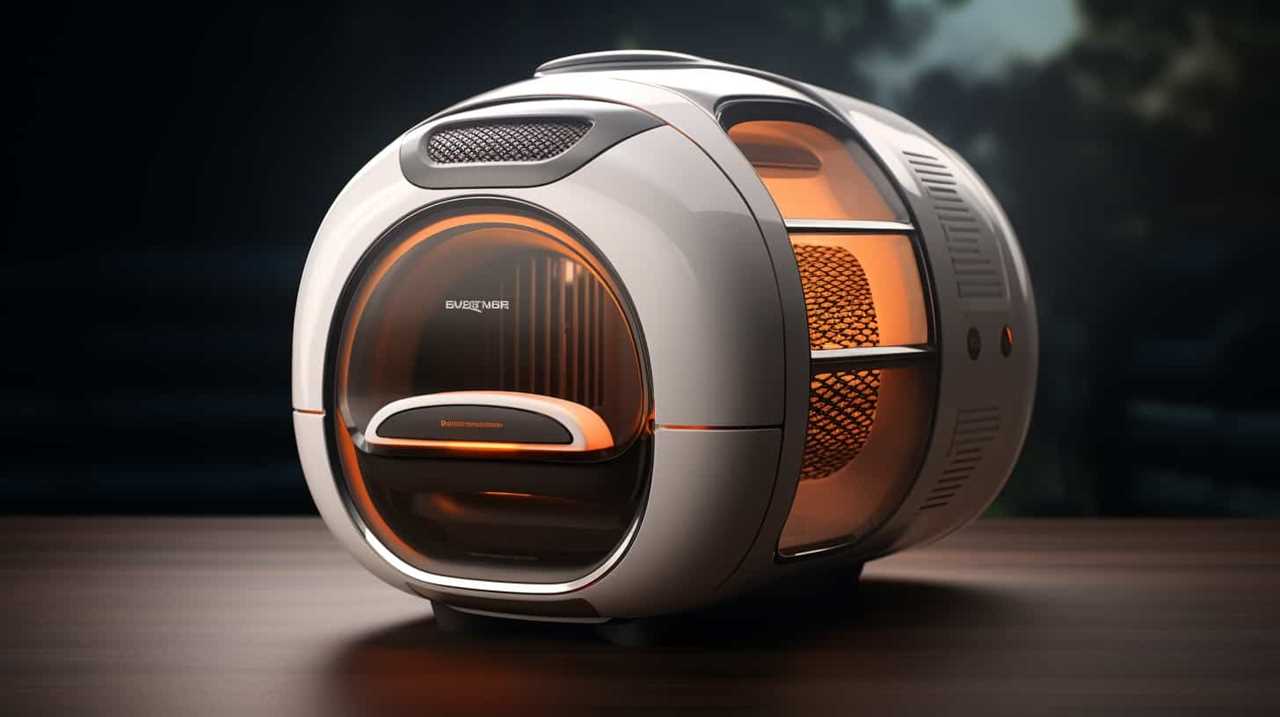
The Role of Air Purifiers in Allergy Relief
Air purifiers play a crucial role in relieving allergies by filtering out airborne allergens, such as pet dander and pollen, from the indoor environment. These devices work by drawing in the surrounding air and passing it through a series of filters that trap and remove allergens, providing cleaner air to breathe.
One of the common allergens that air purifiers can effectively remove is pet dander. Pet owners who suffer from allergies can benefit from using air purifiers to reduce the presence of pet dander in their homes. Additionally, air purifiers can also help alleviate symptoms related to seasonal allergies, such as pollen, by capturing these particles and preventing them from circulating in the air.
By reducing the concentration of allergens in the air, air purifiers can provide relief to individuals with allergies, allowing them to breathe more easily and reducing the frequency and severity of allergic reactions.
Transitioning into the subsequent section, the impact of air purifiers on respiratory health will be discussed.
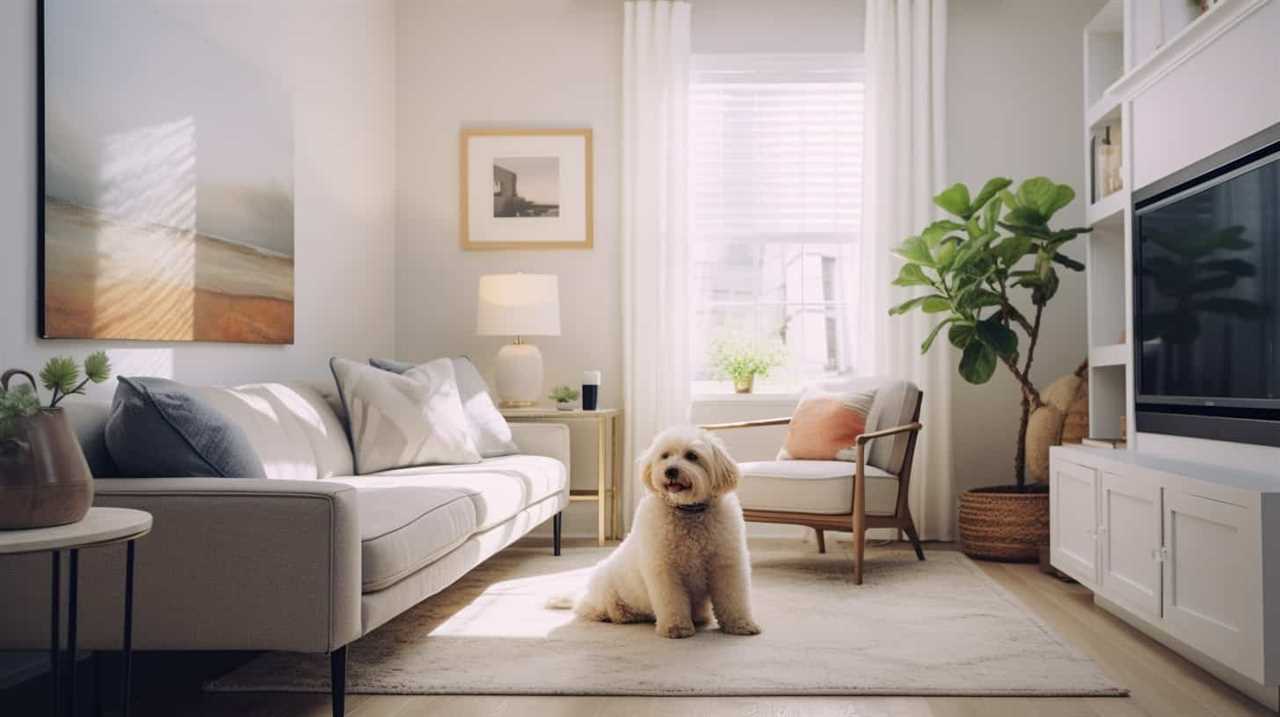
The Impact of Air Purifiers on Respiratory Health
As someone concerned about respiratory health, I’ve found that air purifiers can have a significant impact.
Studies have shown that air purifiers can improve lung function by reducing the number of airborne particles and pollutants in the air.
Additionally, they’ve been found to reduce allergy symptoms and can serve as an aid in managing asthma.
Improved Lung Function
I can feel my lungs breathing easier since using an air purifier. The improved air quality has had a significant impact on my overall respiratory health. Here are three ways in which air purifiers have enhanced my well-being:

Improved Sleep Quality: With cleaner air circulating in my bedroom, I’ve noticed a remarkable improvement in my sleep patterns. The absence of airborne pollutants allows for a more restful and uninterrupted sleep, resulting in increased energy levels during the day.
Air Purifiers for Pets: As a pet owner, I’ve always been concerned about the potential allergens and pet dander in my home. However, since using an air purifier, I’ve experienced a reduction in pet-related allergies. The purifier effectively captures pet hair, dander, and other particles, creating a healthier environment for both me and my furry friend.
Allergy Symptom Reduction: By eliminating allergens such as pollen, dust mites, and mold spores from the air, air purifiers have significantly reduced my allergy symptoms. I no longer suffer from constant sneezing, itchy eyes, or congestion, resulting in a better quality of life.
With improved lung function and better sleep quality, the next logical step is to explore how air purifiers can aid in the reduction of allergy symptoms.
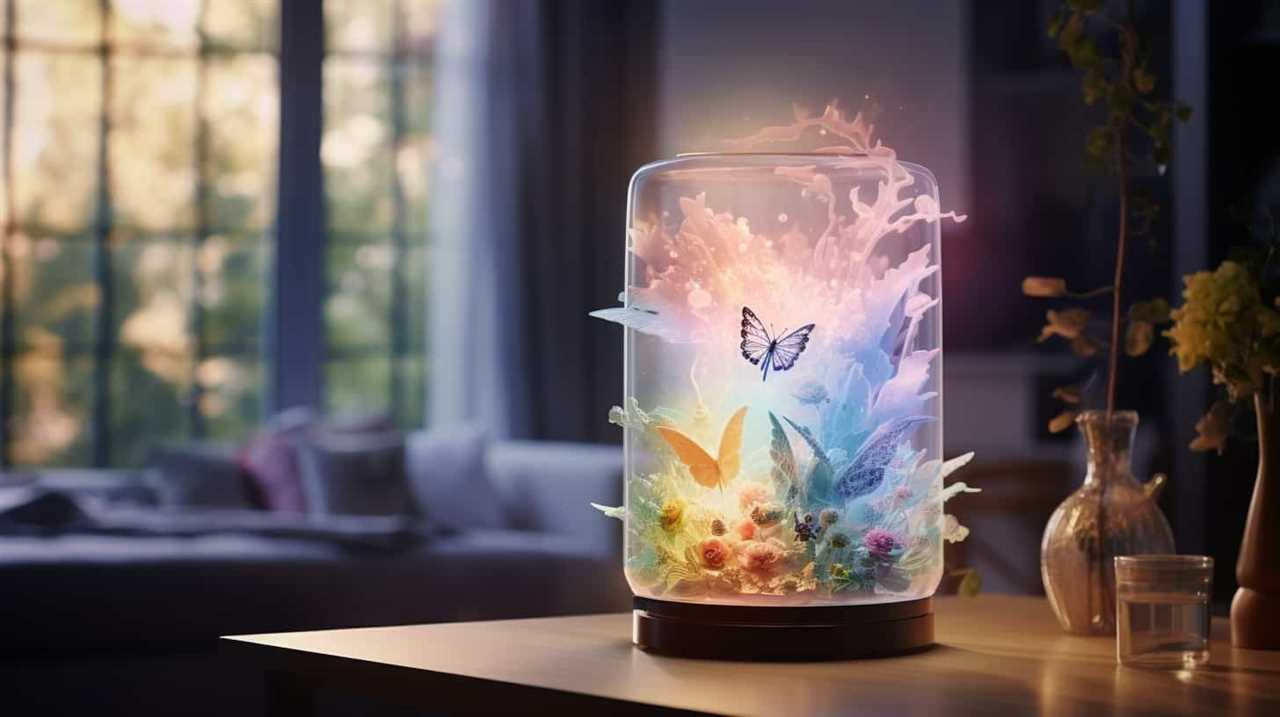
Allergy Symptom Reduction
When it comes to allergies, indoor pollution can be a major trigger for symptoms. However, with the improvement in air quality provided by air purifiers, allergy symptom reduction is possible.
Indoor pollution, such as dust mites, pet dander, and pollen, can accumulate in our homes and worsen allergy symptoms. By using air purifiers, these allergens can be effectively removed from the air, providing relief for allergy sufferers. The filtration systems in air purifiers are designed to capture even the smallest particles, ensuring cleaner air and reducing exposure to allergens.
With the reduction of indoor pollution and improvement in air quality, allergy symptoms can be significantly reduced, allowing individuals to breathe easier and enjoy their homes without constant discomfort.
Transitioning into the subsequent section about asthma management aid, air purifiers can also be beneficial for those with asthma.

Asthma Management Aid
With the ability to improve air quality and reduce exposure to allergens, air purifiers can be a helpful tool for managing asthma symptoms. As someone who suffers from asthma, I’ve found that using an air purifier has made a significant difference in my daily life.
Here are three reasons why air purifiers are beneficial for asthma management:
Asthma prevention: Air purifiers can help remove triggers such as dust mites, pet dander, and mold spores from the air, reducing the risk of asthma attacks.
Reduction of air pollution effects: Air purifiers can filter out pollutants like smoke, smog, and particulate matter, which can aggravate asthma symptoms and trigger respiratory problems.
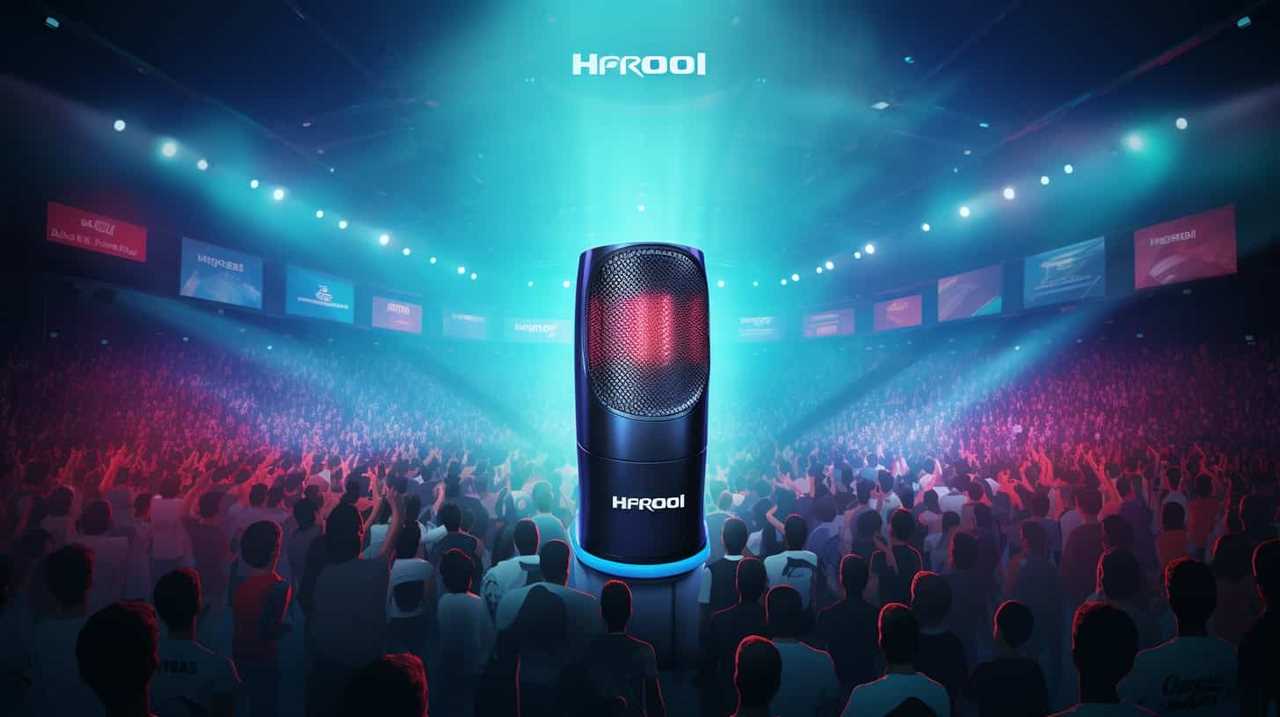
Improved indoor air quality: Air purifiers can effectively remove indoor pollutants like volatile organic compounds (VOCs), chemicals, and odors, creating a cleaner and healthier environment for individuals with asthma.
The Future of Air Purifiers: What to Expect
Hopefully, air purifiers will continue to advance and become more efficient in the future, providing cleaner and healthier air for everyone.
Indoor air pollution is a significant concern, as it can contain various harmful particles and pollutants that can negatively impact our health. Air purifiers play a crucial role in improving indoor air quality by removing these pollutants and allergens.
However, to ensure their effectiveness, proper maintenance is essential. Regularly cleaning and replacing filters is necessary to maintain optimal performance. Additionally, keeping the surrounding area clean and free from dust and debris can help prolong the lifespan of the air purifier.

In the future, advancements in technology may lead to more advanced filtration systems and improved purification methods, making air purifiers even more effective in combating indoor air pollution.
Have Air Purifiers Really Become Our New Overlords, or is it Just a Gimmick in Competitive Air Purifying Championships?
In the world of air purifiers, there’s an ongoing debate about their efficacy. Some believe they have become our new overlords, while others see it as just a gimmick in a competitive air purifier championship showdown. Regardless of the debate, the demand for air purifiers continues to rise.
Frequently Asked Questions
How Do Air Purifiers Work?
Air purifiers work by using advanced technology to remove pollutants from the air. They typically use filters or other methods to trap particles like dust, pollen, and smoke. This helps to improve indoor air quality and can have various health benefits.
Air purifiers can reduce allergy symptoms, minimize asthma triggers, and remove harmful substances from the air, promoting a cleaner and healthier environment.
Overall, air purifiers play a crucial role in maintaining good indoor air quality and supporting respiratory health.
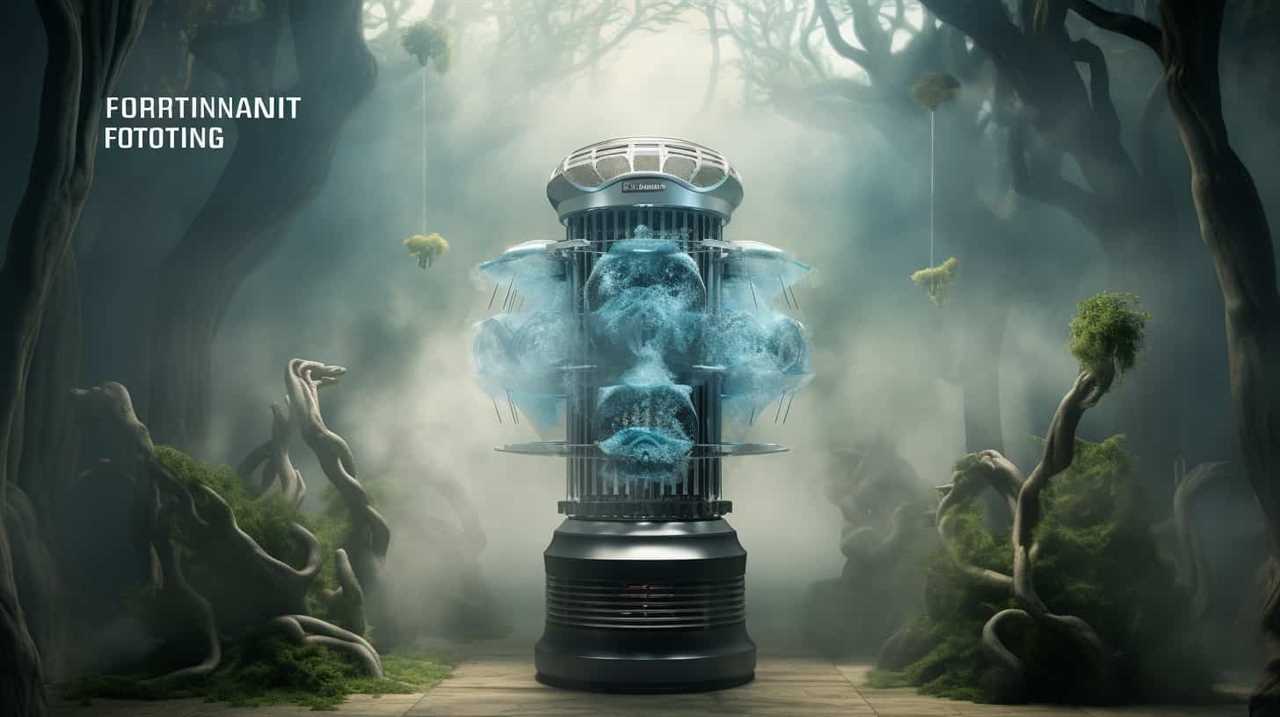
Can Air Purifiers Remove All Types of Air Pollutants?
Yes, air purifiers can remove a wide range of air pollutants, including dust, pollen, pet dander, mold spores, and even some bacteria and viruses.
However, it’s important to note that not all air purifiers are created equal, and their effectiveness can vary depending on the type and size of pollutants present.
Regular use of air purifiers can improve indoor air quality, which is essential for maintaining respiratory health.
As the saying goes, ‘Clean air, healthy lungs.’
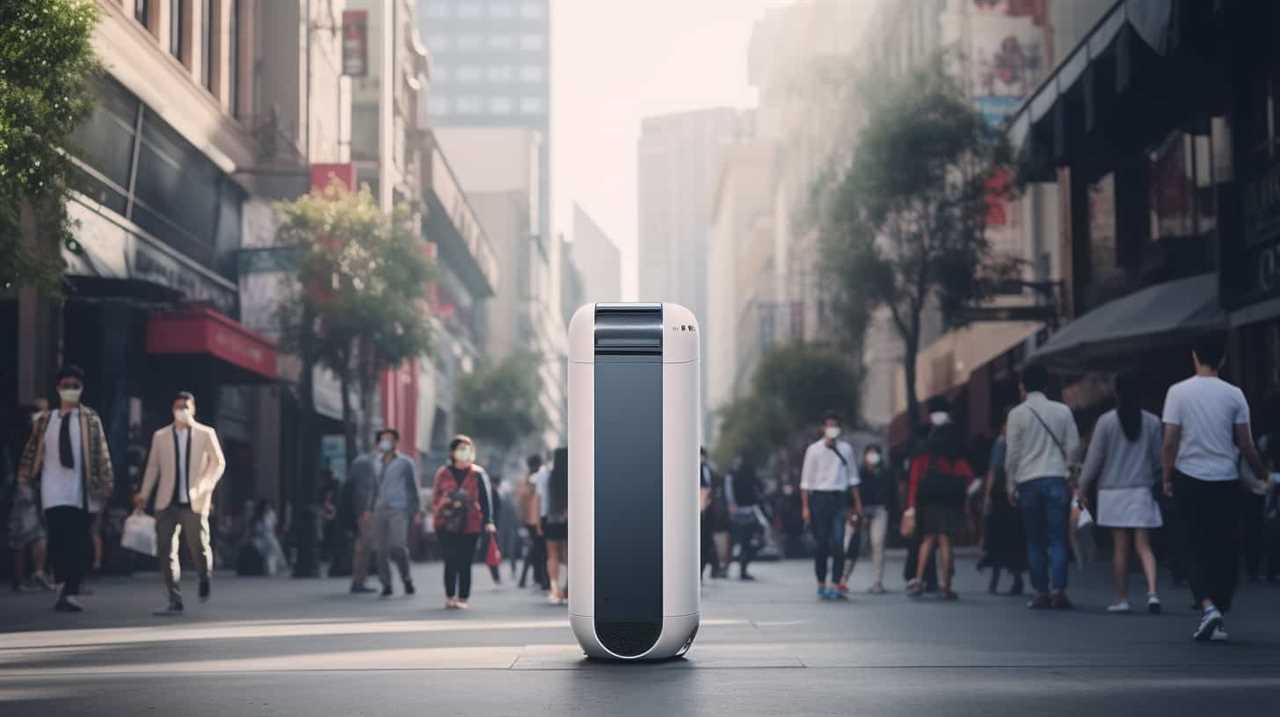
Are Air Purifiers Effective in Large Spaces or Just Small Rooms?
In my experience, air purifiers have proven to be effective in both small rooms and large spaces.
However, there are some limitations when it comes to using air purifiers for commercial purposes. While they can help improve indoor air quality in schools and offices, their impact may be limited in larger areas with high levels of pollution.
It’s important to consider the size and specifications of the air purifier to ensure optimal performance in different settings.
Can Air Purifiers Help With Pet Allergies?
Yes, air purifiers can help with pet allergies. These devices work by filtering out allergens such as pet dander and fur from the air, reducing the amount of allergens that can trigger allergic reactions.

By improving indoor air quality, air purifiers can provide relief for individuals with asthma and other respiratory conditions.
It’s important to choose an air purifier with a HEPA filter, as this type of filter is effective in capturing small particles like pet allergens.
Are Air Purifiers Noisy and Do They Consume a Lot of Energy?
Air purifiers vary in their energy consumption and noise levels. Some models are designed to be energy-efficient, consuming minimal power. Noise levels also differ depending on the brand and model.
While some air purifiers operate quietly, others may produce noticeable noise, especially at higher fan speeds.
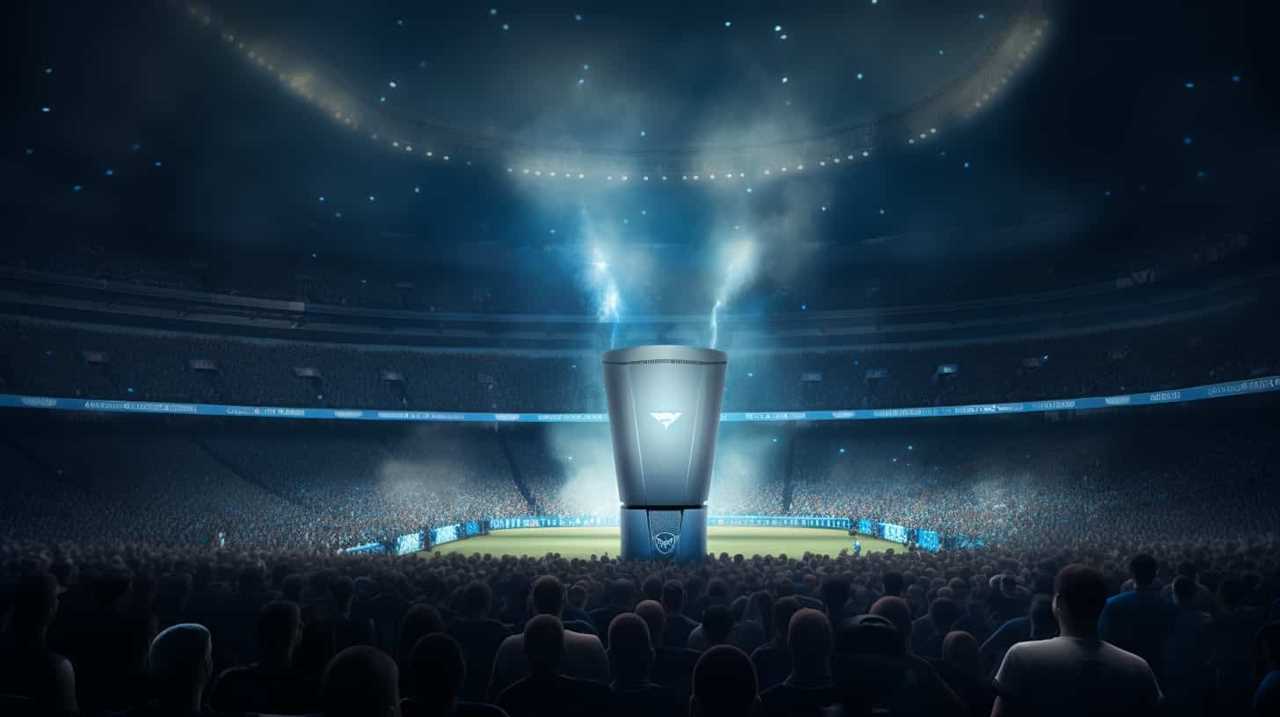
It’s important to check the specifications of the specific air purifier you’re considering to determine its energy consumption and noise level.
Conclusion
In conclusion, air purifiers have rapidly gained popularity and proven to be an effective solution for improving indoor air quality. With their advanced technology and ability to remove pollutants, these devices have become an essential tool in promoting respiratory health and relieving allergies.
The growing market for air purifiers reflects the increasing awareness of the importance of clean air. As these unconventional devices continue to revolutionize our indoor environments, it’s safe to say that air purifiers have conquered the world, becoming our new overlords of fresh and purified air.

